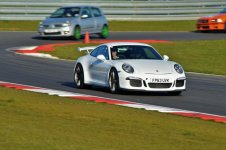robstopper
Senior Member
Hey everybody.
I'm relatively new to the DSLR world, having recently upgraded to a D3200 from my previous Fuji Finepix bridge camera. It always took a half decent shot, but was very zoom-limited, and with a Spitfire flight experience coming up in a couple of weeks time, I felt the need to finally upgrade to do the event justice.
I've been practising with it as much as possible in the last few weeks, and I'm getting better. I'm still a little unsatisfied with the general sharpness of the pictures when you zoom in on them on a laptop, but having read a previous topic on here (Google brought me to this forum by searching for questions about that particular topic), I've already got a few ideas on how to improve things further.
I'm relatively new to the DSLR world, having recently upgraded to a D3200 from my previous Fuji Finepix bridge camera. It always took a half decent shot, but was very zoom-limited, and with a Spitfire flight experience coming up in a couple of weeks time, I felt the need to finally upgrade to do the event justice.
I've been practising with it as much as possible in the last few weeks, and I'm getting better. I'm still a little unsatisfied with the general sharpness of the pictures when you zoom in on them on a laptop, but having read a previous topic on here (Google brought me to this forum by searching for questions about that particular topic), I've already got a few ideas on how to improve things further.

